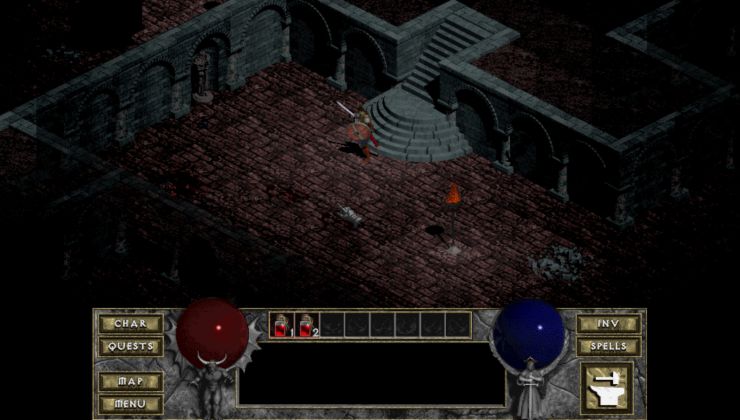Oh dear, oh dear. The developers behind ARK: Survival Evolved (Studio Wildcard) are facing a lawsuit from the developers behind Dungeon Defenders (Trendy Entertainment).
The games are very different, but it's a people and contracts issue here. It sounds like someone has a vendetta against someone else.
It all revolves around a contract, and apparently Jeremy Stieglitz who used to work for Trendy Entertainment and apparently breached it by joining Studio Wildcard to work on ARK: Survival Evolved. Tredy Entertainment seems to require people who leave not to compete with the studio by making games for three years. Personally, I think these sorts of contracts do no good, and I am not a fan of them. I am surprised such a contract is even legal!
I am always fascinated by these sorts of lawsuits, as surely this is going to backfire on Trendy Entertainment and have a bad effect on their Dungeon Defenders games? They are already getting bad reviews for going after another developer, and their forum is filling up with angry posts. This won't end well.
To me, it sounds rather a lot like an issue of jealousy, as a developer moved onto a game that became wildly successful and they want a piece of the pie.
Thanks, Kotaku.
How do you feel about this? I know quite a lot of people really like ARK, so I hope this doesn't set development back. It could push ARK off Steam for a while, which would be a shame. Can you imagine the hell their forum and reviews would turn into ARK got forced off of Steam?
The games are very different, but it's a people and contracts issue here. It sounds like someone has a vendetta against someone else.
It all revolves around a contract, and apparently Jeremy Stieglitz who used to work for Trendy Entertainment and apparently breached it by joining Studio Wildcard to work on ARK: Survival Evolved. Tredy Entertainment seems to require people who leave not to compete with the studio by making games for three years. Personally, I think these sorts of contracts do no good, and I am not a fan of them. I am surprised such a contract is even legal!
I am always fascinated by these sorts of lawsuits, as surely this is going to backfire on Trendy Entertainment and have a bad effect on their Dungeon Defenders games? They are already getting bad reviews for going after another developer, and their forum is filling up with angry posts. This won't end well.
To me, it sounds rather a lot like an issue of jealousy, as a developer moved onto a game that became wildly successful and they want a piece of the pie.
Thanks, Kotaku.
How do you feel about this? I know quite a lot of people really like ARK, so I hope this doesn't set development back. It could push ARK off Steam for a while, which would be a shame. Can you imagine the hell their forum and reviews would turn into ARK got forced off of Steam?
Some you may have missed, popular articles from the last month:
All posts need to follow our rules. For users logged in: please hit the Report Flag icon on any post that breaks the rules or contains illegal / harmful content. Guest readers can email us for any issues.
Unless someone is holding a gun to his head, a prospective employee is under no compulsion to sign a contract he doesn't agree with. To claim that the employee in this instance was "starving" and had no choice but to accept an unfair deal is absurd. And "potentate"? Really? It's not as if Trendy Entertainment was the only company in the whole of the United States that would have been willing to hire him."Personally, I think these sorts of contracts do no good, and I am not a fan of them. I am surprised such a contract is even legal!"ROFL
Why should they be illegal? If an employer says, "Here are the terms you must agree to before we'll hire you," and the employee signs on the dotted line anyway then that's on them. Trendy Entertainment is perfectly within its right to enforce a contract that both parties willingly agreed to.
Just one sentence from Noam Chomsky:
The idea of "free contract" between the potentate and his starving subject is a sick joke, perhaps worth some moments in an academic seminar exploring the consequences of (in my view, absurd) ideas, but nowhere else.
Chomsky is a brilliant linguist, but his view on politics are, to be polite, a bit out there.
Say what you want, a Non-Compete cannot Legally prevent you from earning a living in your profession. That info comes directly from a lawyer. The ONLY way Trendy's Non-compete clause can prevent someone from working in gaming is if that Non-Compete states that they can't work in gaming within 200 miles (or someother limited distance) of Trendy. ANY Non-Compete that prevents an employee from working in their profession and earning a living at all is considered "unenforceable". Basically a Non-Compete that prevents you from working in your chosen profession/specialty would be akin to signing yourself into servitude as no one would ever be able to leave their company without leaving their career, giving many companies absolutely no reason to treat their employees well.
0 Likes
That seems almost the exact inverse of what, when TheBoss said it, your rejoinder was "You're right, that is a stupid example". This is a ludicrous claim, why do I see it so often? Of course it's not the case that there is no such thing as compulsion that doesn't consist of holding a gun to the head. There are many kinds and degrees of compulsion. And it's certainly the case that overall, in gaming companies, people tend to need jobs much more than companies need any given employee, and this differential in power is often used to insist on crap working conditions and nasty contracts. If the power dynamic were different, so would the contracts be. And indeed, every so often you get a superstar programmer who is in great demand, and is well enough off not to really need a job at all, and whose contracts, surprise surprise, are very different. The notion that contracts are, ever really, something happening in some hypothetical magical neutral space where everyone is freed of all coercion is laughable.Unless someone is holding a gun to his head, a prospective employee is under no compulsion to sign a contract he doesn't agree with."Personally, I think these sorts of contracts do no good, and I am not a fan of them. I am surprised such a contract is even legal!"ROFL
Why should they be illegal? If an employer says, "Here are the terms you must agree to before we'll hire you," and the employee signs on the dotted line anyway then that's on them. Trendy Entertainment is perfectly within its right to enforce a contract that both parties willingly agreed to.
Just one sentence from Noam Chomsky:
The idea of "free contract" between the potentate and his starving subject is a sick joke, perhaps worth some moments in an academic seminar exploring the consequences of (in my view, absurd) ideas, but nowhere else.
This is one reason why it's important for there to be some kind of outside social arbiter (such as, although not necessarily limited to, the state) imposing some limits on how unfair contracts are allowed to be, how much power imbalance is allowed to be brought to bear.
As to this particular case, I think I dislike everyone involved. Stieglitz sounds like a jerk, given the way he seems to have treated people he bossed. Trendy sound like creeps who were probably just fine with Stieglitz's management style until it blew up on them and they had to shuffle things around to save face, and their contract is BS. Even some of the employees . . . even if Stieglitz was treating them like crap, was whining to the media the best action to take? I have my doubts. But dislike Stieglitz personally though I may (given current information at hand--maybe he's a great guy and the people who worked under him were indulging in horrible calumnies), I'd rather see this blow up in Trendy's face because abusing vicious contracts is a broader problem whereas Stieglitz is just one particular dude.
Last edited by Purple Library Guy on 30 Mar 2016 at 5:54 pm UTC
0 Likes
No, the contract lasts for the length of time agreed to by both parties.It depends on the terms of the contract.It really doesn't. If the employment is over the contract is over, the terms in the contract are irrelevant at that point.
Last edited by Mountain Man on 30 Mar 2016 at 6:04 pm UTC
0 Likes
Say what you want, a Non-Compete cannot Legally prevent you from earning a living in your profession. That info comes directly from a lawyer. The ONLY way Trendy's Non-compete clause can prevent someone from working in gaming is if that Non-Compete states that they can't work in gaming within 200 miles (or someother limited distance) of Trendy. ANY Non-Compete that prevents an employee from working in their profession and earning a living at all is considered "unenforceable". Basically a Non-Compete that prevents you from working in your chosen profession/specialty would be akin to signing yourself into servitude as no one would ever be able to leave their company without leaving their career, giving many companies absolutely no reason to treat their employees well.I don't know the exact terms of the contract, so it's rather hard to say one way or another. My only point is that on general principle, there's nothing inherently wrong with a non-compete contract, although like anything in business -- or life -- it can be stretched beyond the bound of what's reasonable.
Last edited by Mountain Man on 30 Mar 2016 at 6:05 pm UTC
0 Likes
"Holding a gun to his head" is a euphemism. I didn't mean it literally.That seems almost the exact inverse of what, when TheBoss said it, your rejoinder was "You're right, that is a stupid example". This is a ludicrous claim, why do I see it so often? Of course it's not the case that there is no such thing as compulsion that doesn't consist of holding a gun to the head. There are many kinds and degrees of compulsion. And it's certainly the case that overall, in gaming companies, people tend to need jobs much more than companies need any given employee, and this differential in power is often used to insist on crap working conditions and nasty contracts. If the power dynamic were different, so would the contracts be. And indeed, every so often you get a superstar programmer who is in great demand, and is well enough off not to really need a job at all, and whose contracts, surprise surprise, are very different. The notion that contracts are, ever really, something happening in some hypothetical magical neutral space where everyone is freed of all coercion is laughable.Unless someone is holding a gun to his head, a prospective employee is under no compulsion to sign a contract he doesn't agree with."Personally, I think these sorts of contracts do no good, and I am not a fan of them. I am surprised such a contract is even legal!"ROFL
Why should they be illegal? If an employer says, "Here are the terms you must agree to before we'll hire you," and the employee signs on the dotted line anyway then that's on them. Trendy Entertainment is perfectly within its right to enforce a contract that both parties willingly agreed to.
Just one sentence from Noam Chomsky:
The idea of "free contract" between the potentate and his starving subject is a sick joke, perhaps worth some moments in an academic seminar exploring the consequences of (in my view, absurd) ideas, but nowhere else.
This is one reason why it's important for there to be some kind of outside social arbiter (such as, although not necessarily limited to, the state) imposing some limits on how unfair contracts are allowed to be, how much power imbalance is allowed to be brought to bear.
As to this particular case, I think I dislike everyone involved. Stieglitz sounds like a jerk, given the way he seems to have treated people he bossed. Trendy sound like creeps who were probably just fine with Stieglitz's management style until it blew up on them and they had to shuffle things around to save face, and their contract is BS. Even some of the employees . . . even if Stieglitz was treating them like crap, was whining to the media the best action to take? I have my doubts. But dislike Stieglitz personally though I may (given current information at hand--maybe he's a great guy and the people who worked under him were indulging in horrible calumnies), I'd rather see this blow up in Trendy's face because abusing vicious contracts is a broader problem whereas Stieglitz is just one particular dude.
My point is that at least here in America, it is extremely rare for someone seeking employment to be in a do-or-die situation where they literally have no choice but to accept an unfair contract. Furthermore, there is a significant difference between not being able to find work in your chosen field versus not being able to find work at all. Just because an aspiring game designer can't find work with a developer doesn't mean that his only other choice is to starve, so Chomsky's rather extreme analogy doesn't fit this scenario.
Last edited by Mountain Man on 30 Mar 2016 at 6:16 pm UTC
0 Likes
No, the contract lasts for the length of time agreed to by both parties.
And in an employment contract that length of time is the same as the period of employment. The contract and the employment cease at the same time. After the employment is over the contract is over.
0 Likes
You're really quite ignorant about these things, aren't you?No, the contract lasts for the length of time agreed to by both parties.And in an employment contract that length of time is the same as the period of employment. The contract and the employment cease at the same time. After the employment is over the contract is over.
"NONCOMPETITION AGREEMENT. In the noncompetition clause, the employee agrees that for a certain amount of time after he or she stops working for the employer, the employee will not become employed by a rival company or any company engaged in a similar type of business, and the employee will not set up a company that will compete with the employer's business (or solicit the employer's customers). Usually the noncompetition clause is limited to a particular geographic area."
http://employment.findlaw.com/hiring-process/employment-contracts-and-compensation-agreements.html
So like I said, the contract lasts for the length of time agreed to by both parties. If your employer could nullify your contract simply by firing you then what's the point of having a contract?
"Yes, I know your contract says we'll give you $1,000,000 compensation if you're ever fired, but since you no longer work for us, that contract is no longer binding. Better luck next time."
Yeah, it doesn't work like that.
0 Likes
If your employer could nullify your contract simply by firing you then what's the point of having a contract?
The employment contract determines the mechanisms by which you can be fired. If it doesn't then I agree, there is no point to having one.
"Yes, I know your contract says we'll give you $1,000,000 compensation if you're ever fired, but since you no longer work for us, that contract is no longer binding. Better luck next time."
Yeah, it doesn't work like that.
If compensation is necessary to terminate the contract then they can't terminate the contract without paying out.
0 Likes
I like how you skipped right over the quote from FindLaw.com which proved you wrong. :D
0 Likes







 How to set, change and reset your SteamOS / Steam Deck desktop sudo password
How to set, change and reset your SteamOS / Steam Deck desktop sudo password How to set up Decky Loader on Steam Deck / SteamOS for easy plugins
How to set up Decky Loader on Steam Deck / SteamOS for easy plugins
See more from me